AT&T and T-Mobile have both made some clarifications this week on how they "throttle" their unlimited data users.
Or rather - how they insist that they do NOT throttle.
But in practice - though the word "throttle" is being avoided - the "congestion management" practices being applied to unlimited data customers will have a significant slowing effect.
Read on for the details...
AT&T: Still Thinks 5GB is "Unlimited"
 Though AT&T hasn't offered an unlimited data phone plan to new customers in years, customers clinging to grandfathered plans have actually been living with a 5GB throttle that has made these plans anything but unlimited in practice.
Though AT&T hasn't offered an unlimited data phone plan to new customers in years, customers clinging to grandfathered plans have actually been living with a 5GB throttle that has made these plans anything but unlimited in practice.
The way the throttle worked: as soon as an unlimited customer used 5GB of data, they were then slowed down to a crawl for the remainder of the month. There were no overage fees, but ALL data past the 5GB point was barely useable.
If you think this sounds deceptive - so does the FTC, which has been leading a lawsuit against AT&T over the throttling practices.
AT&T has fought to keep this policy in place, but with the new network neutrality rules kicking in it seems that AT&T has at last eased off the hard throttle. A bit.
AT&T still thinks that 5GB is more than an "unlimited" customer needs, but Ars Technica noticed yesterday that AT&T has at last changed the fine print of the rules in place to drop the instant slowdown after 5GB.
The new rules are explained on AT&T's support website:
Reducing data speed (data throughput) and network management are common practices in the wireless industry. How we are managing the network only affects a small minority of the heaviest smartphone data users still on unlimited data plans - more than 97 percent of our smartphone customers are not impacted by this.
You can still use an unlimited amount of data each month without incurring overage charges
That won't change. As a result of AT&T's network management process, customers on a 3G, 4G or 4G LTE smartphone with an unlimited data plan who have exceeded 3 gigabytes (3G/4G) or 5 gigabytes (4G LTE) of data in a billing period may experience reduced speeds when using data services at times and in areas that are experiencing network congestion. All such customers can still use unlimited data without being subject to overage charges, and their speeds will be restored with the start of the next billing cycle. Even with reduced speed, customers normally can still have a good experience surfing the Web, accessing email, and continuing to use an unlimited amount of data each month without incurring overage charges. Customers will likely notice the biggest difference while streaming video. Streaming video consumes the most data of all activities and is often the reason customers are treated.
The important change is that on non-congested towers, unlimited customers will now still get full speeds no matter how much data they use. But on congested towers - they will be pushed into the slow lane (relative to all other AT&T customers) after 5GB. The relative speeds of the fast and slow lanes will be entirely dependent on the tower load - the slow lane will not run at a preset punitive throttled speed.
While it would be great if AT&T ditched the 5GB cutout entirely and treated all customers the same, with this change the old AT&T unlimited data smartphone plans will be a lot more practical to hold on to for heavy data users who need on-device data. AT&T continues to not officially support personal hotspot or tethering on these plans.
The catch however is AT&T's network - in a lot of areas of the country, AT&T's towers seem to be "experiencing network congestion" nearly 24/7.
We are very interested to hear reports from unlimited customers to see what sorts of changes they notice now that the new policy is in place.
NOTE: AT&T's extremely rare grandfathered unlimited iPad plan seemingly remains completely unthrottled and not subject to network congestion management. If you have one of these - never let it go.
T-Mobile: The “Top 3%” Fight For Network Scraps
 Though T-Mobile brags about offering unlimited data plans - T-Mobile's unlimited plans also have some significant new limits being enforced behind the scenes.
Though T-Mobile brags about offering unlimited data plans - T-Mobile's unlimited plans also have some significant new limits being enforced behind the scenes.
A growing number of T-Mobile customers have noticed recently that their network speeds have dropped substantially at certain times of day - and according to some comments by T-Mobile employees on Reddit this is the result of a new "Data Prioritization" feature being rolled out.
T-Mobile explains that "Data Prioritization" is focused on slowing down the top 3% of T-Mobile customers:
To provide a good service experience for the majority of our customers, and minimize capacity issues and degradation in network performance, we may manage network traffic through prioritization. This means that customers who use more data than what is used by 97% of what all customers use in a given month, based on recent historical averages, might in some cases have their data usage prioritized below the data of other customers during times and in places of network contention.
T-Mobile has not given any clear guidance on how much data it takes to get into the top 3%, but it seems to be triggered in the 15GB - 20GB range.
Users in busy areas who fall into the top 3% have reported that their network speeds drop abysmally on congested towers during prime times - with heavy users left to "fight over the scraps" of data left over, getting substantially less than 1Mbps speeds while other T-Mobile customers nearby were still getting over 10Mbps.
Hopefully T-Mobile will soon tweak their algorithms to make things a little less painful for heavy data users on congested towers - otherwise T-Mobile's unlimited plans will become a lot less attractive to those of us with heavy data needs.

This new unlimited plan enforcement is an unpleasant shift for T-Mobile. As one T-Mobile employee posted on Reddit:
Just a real great middle finger to every customer I ever told: "Yeah, we don't throttle. Use as much data as you want!"
Sprint: “The Fairness Algorithm”
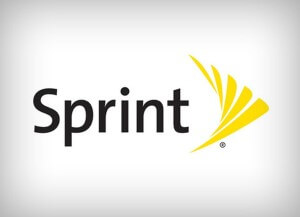 AT&T and T-Mobile for once seem to be following in Sprint's footsteps.
AT&T and T-Mobile for once seem to be following in Sprint's footsteps.
Since last July, Sprint has had a "Fairness Algorithm" that subjects unlimited customers who were in the top 5% of data users the prior month to congestion management - slowing them down on busy towers.
There have been few reports of unlimited Sprint users getting the same sort of extreme slowdowns that some T-Mobile customers have reported this week, so perhaps Sprint's algorithms are better tuned - or the congestion management rules are not actually being enforced behind the scenes.
We'd love to hear from any Sprint customers who would like to share their experiences.
Verizon: The Only Network Without Brakes
 Though Verizon moved to begin throttling grandfathered unlimited users last summer, it backed down from that plan after facing serious pressure from the FCC.
Though Verizon moved to begin throttling grandfathered unlimited users last summer, it backed down from that plan after facing serious pressure from the FCC.
This leaves Verizon as the only truly unlimited LTE network for heavy data users - but it takes jumping through some significant hoops to get ahold of one of these coveted unlimited Verizon data plans.
Verizon would clearly love to put the brakes on unlimited plans, but it the 700MHz spectrum Verizon bought to build its LTE network came with legal strings attached that the other carriers do not have to deal with - making it difficult for Verizon to put throttles or "congestion management" in place without risking the FCC's wrath.
The Future of Unlimited
Users clearly love unlimited data - but spectrum is a scarce resource that carriers do need to manage.
The key is finding a balance.
Fair congestion management that puts the heaviest unlimited customers into a slow lane on overwhelmed towers is probably a reasonable compromise - but the networks need to be managed to make sure that the "slow lane" isn't a "stopped lane" compared to other users on the tower.
Otherwise the heaviest users who most rely on mobile data can be left with "scraps" when they need it the most.
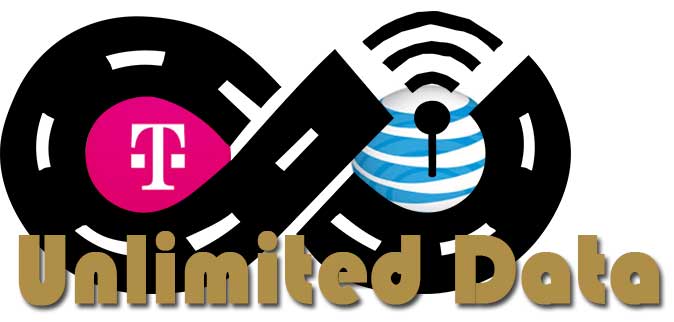
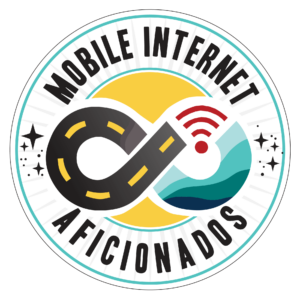

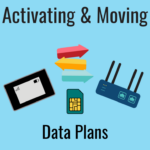


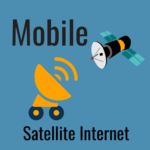

 Mobile Internet Resource Center (dba Two Steps Beyond LLC) is founded by Chris & Cherie of
Mobile Internet Resource Center (dba Two Steps Beyond LLC) is founded by Chris & Cherie of